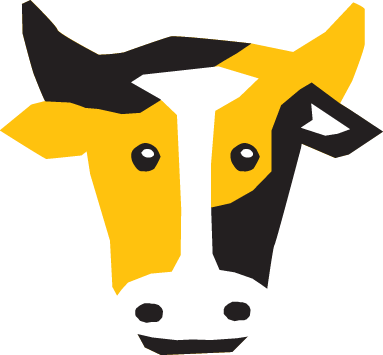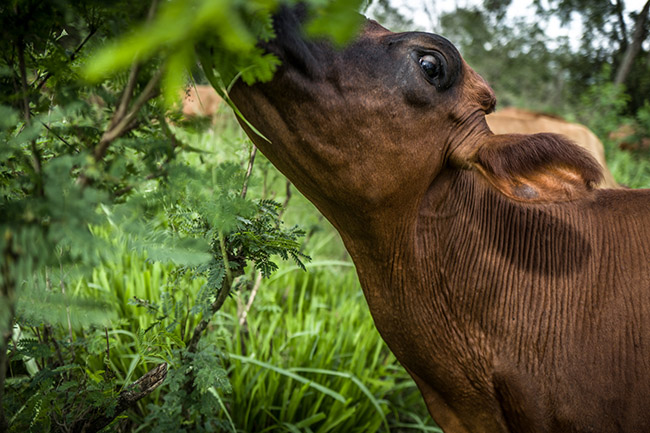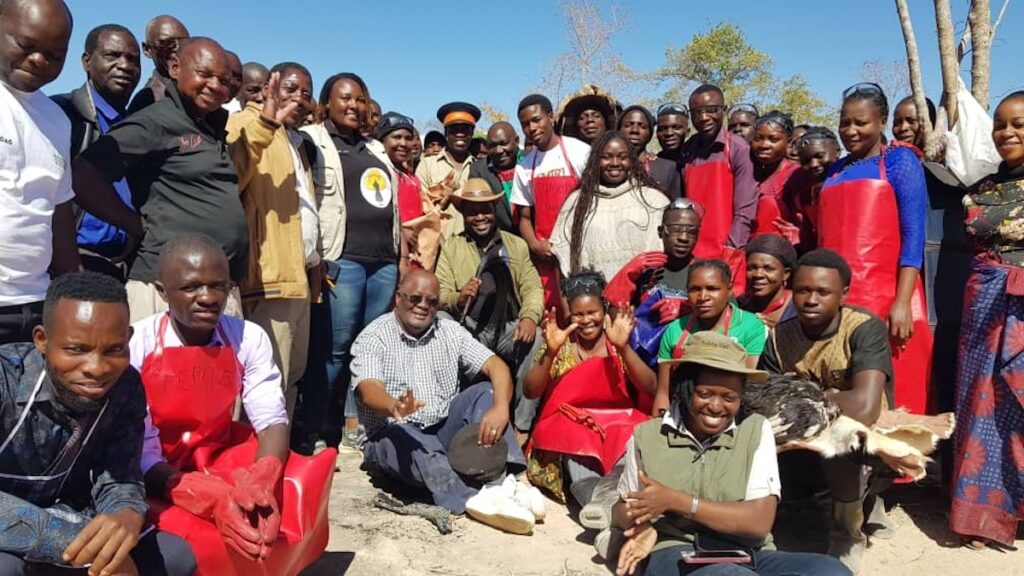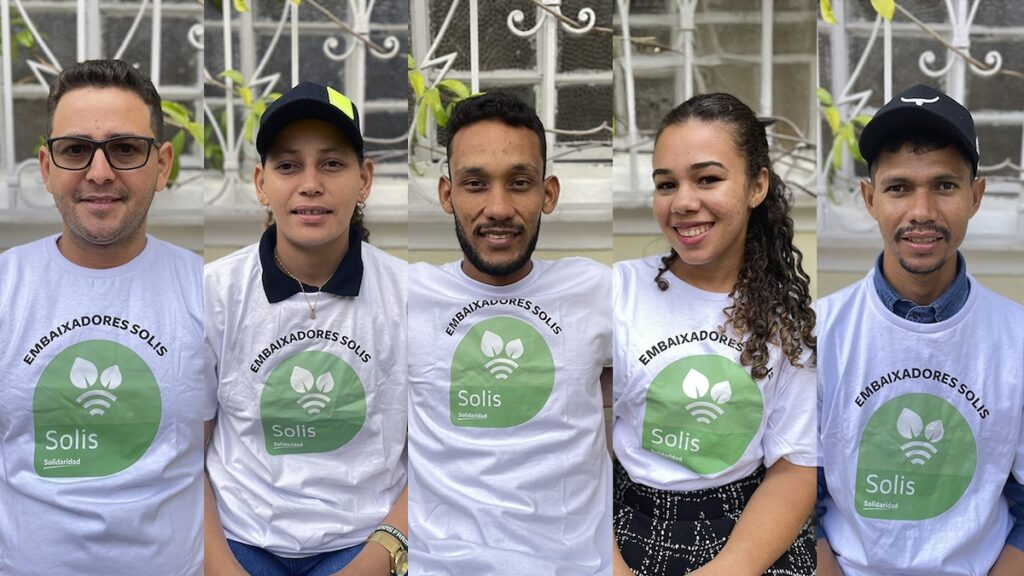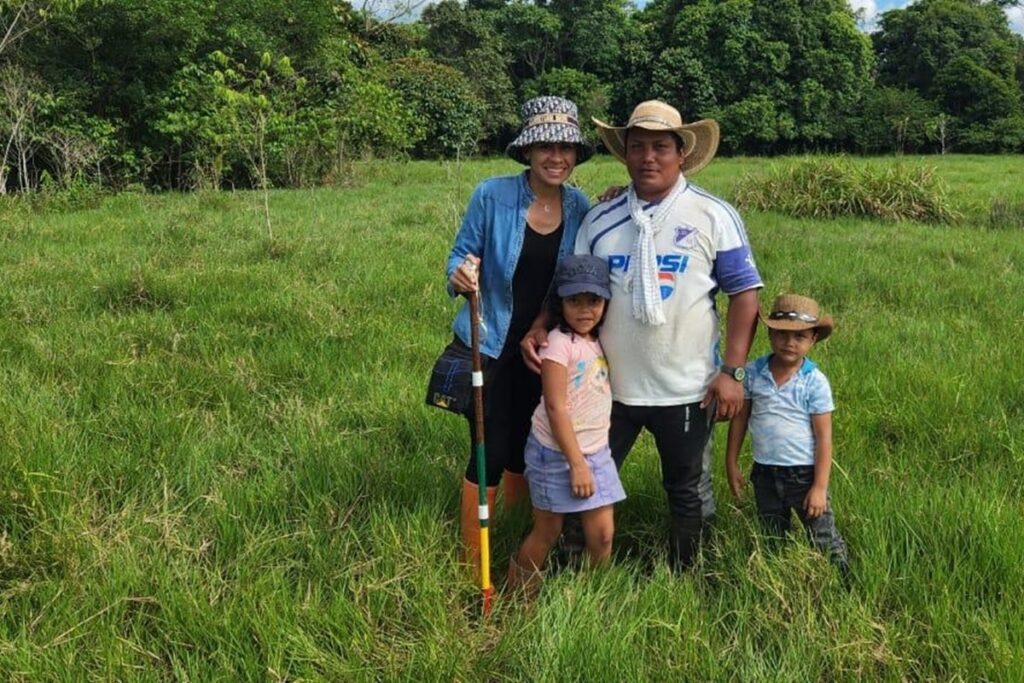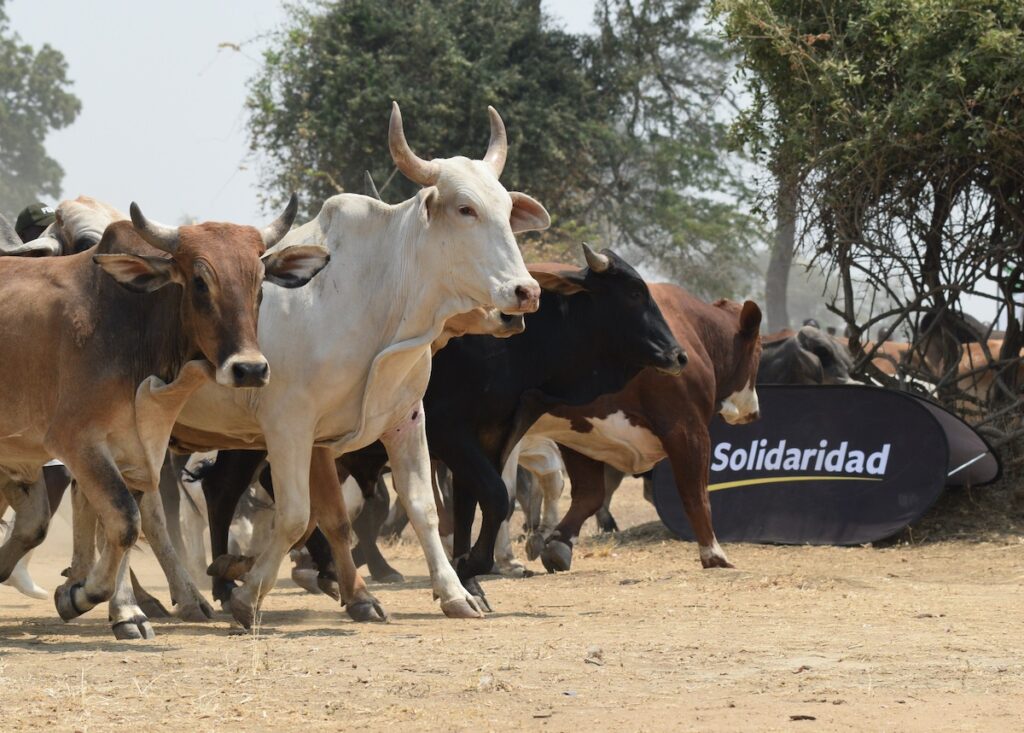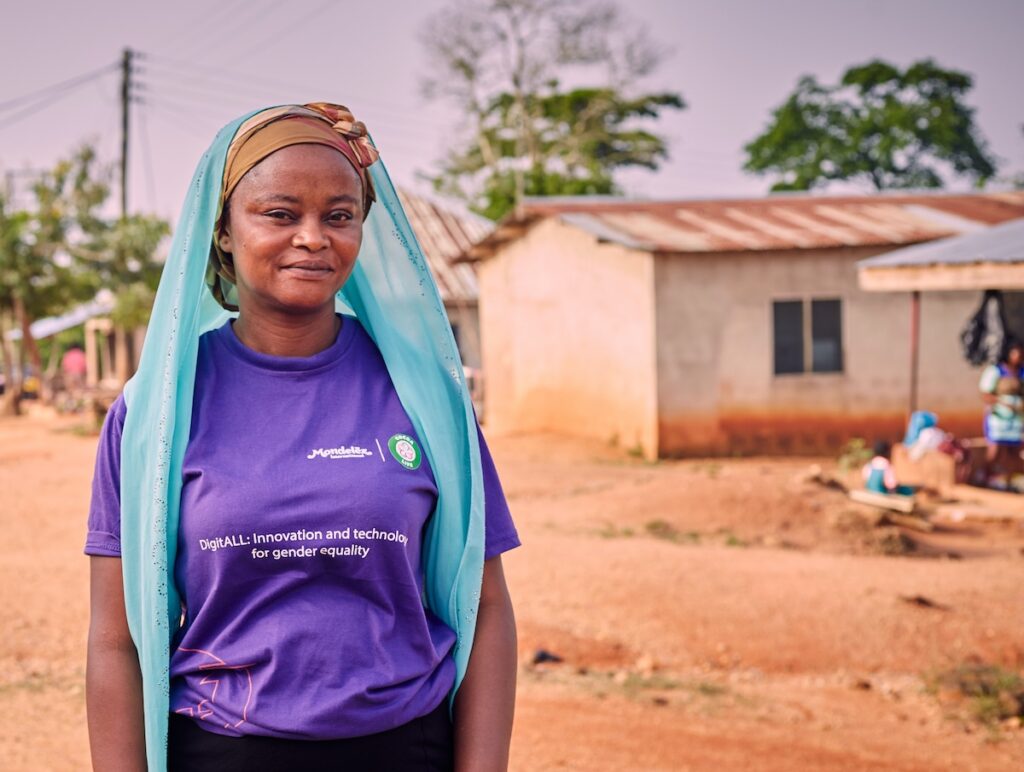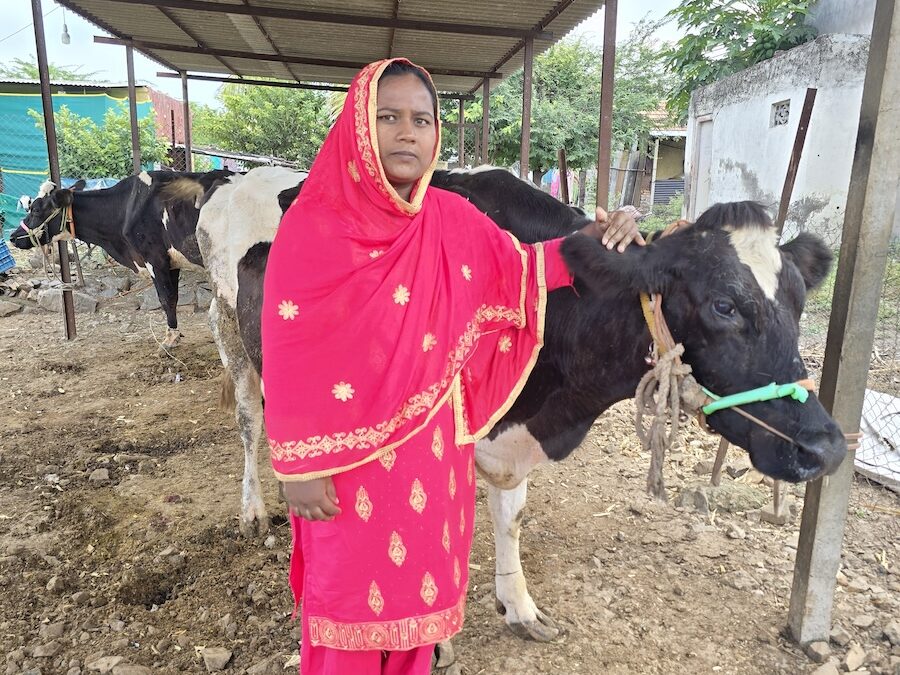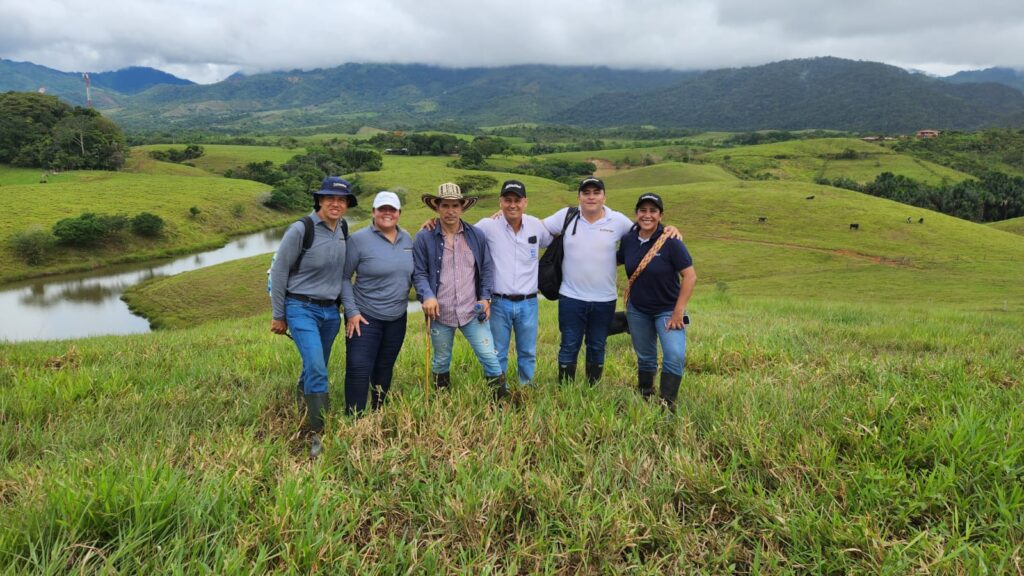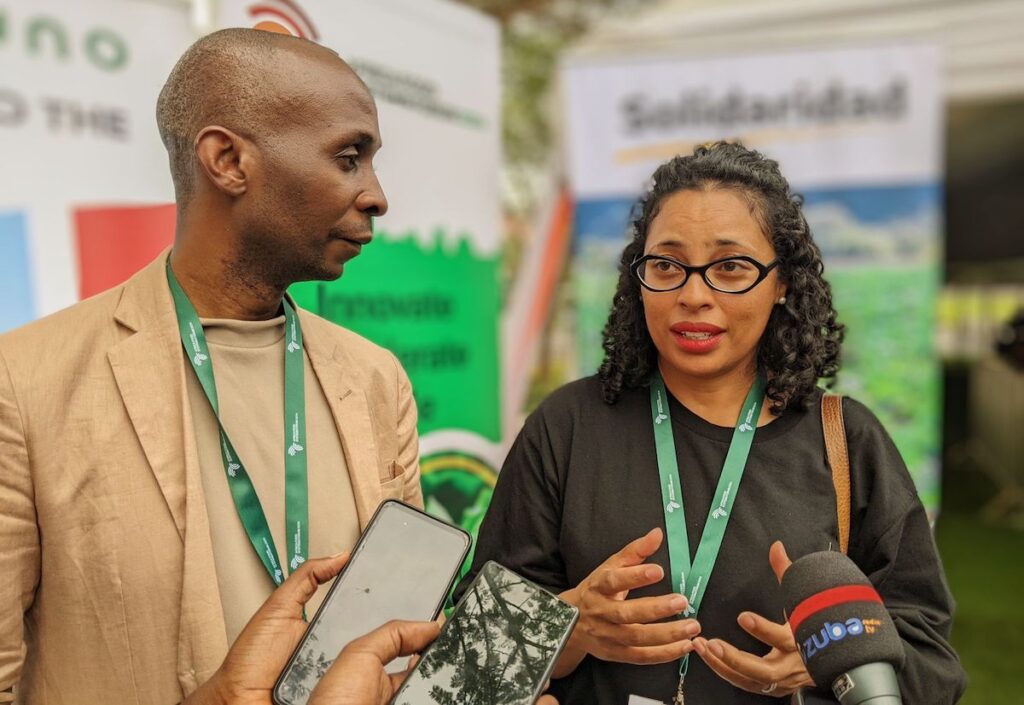
Challenges
Degraded land and climate change
Livestock systems take up nearly 80% of all agricultural areas worldwide and are worth around $1.4 trillion. The sector employs 1.3 billion people globally and directly supports the livelihoods of 600 million poor smallholder farmers in the developing world.
We cannot talk about zero-deforestation without improving agricultural practices. Innovation and learning hubs provide, in addition to access to management and production techniques, the opportunity to integrate small producers in the value chain.
Joyce Brandão, Solidaridad Programme Manager, Brazil
Solutions
Finding balanced, tailored approaches
World livestock production is too important and too diverse for a one-size-fits-all solution. The challenge is to find a balance between food security, poverty, equity, environmental sustainability and economic development in each region. We bring people together to find solutions, test them, and share them globally.

We start from the assumption that it is possible to sustainably work with livestock intensification practices, with family production, in the Amazon biome.
Paulo Lima, project coordinator, Brazil
Achievements
Materializing efforts
After two years of working with 219 families in the Argentine Chaco dry forest, we restored the first eroded plots by planting pastures and rotational grazing. Furthermore, the first group of producers raised their income by up to 200% and weaning rates from between 30 to 50% by adopting a mix of animal welfare practices, a sanitary plan for the cattle, improvements in water management, and access to formal markets.
In Zimbabwe and Malawi, the Inclusive Red Meat Value Chain project capacitated farmers in sustainable production systems across activities such as animal health, silage making, and fodder production. In Zimbabwe, 1,109 farmers were trained, while in Malawi, 650 farmers benefited. 1,028 farmers participated in Zimbabwe and 540 in Malawi in rangeland mapping. In Malawi, the project trained 44 livestock officers in the cattle grading application.
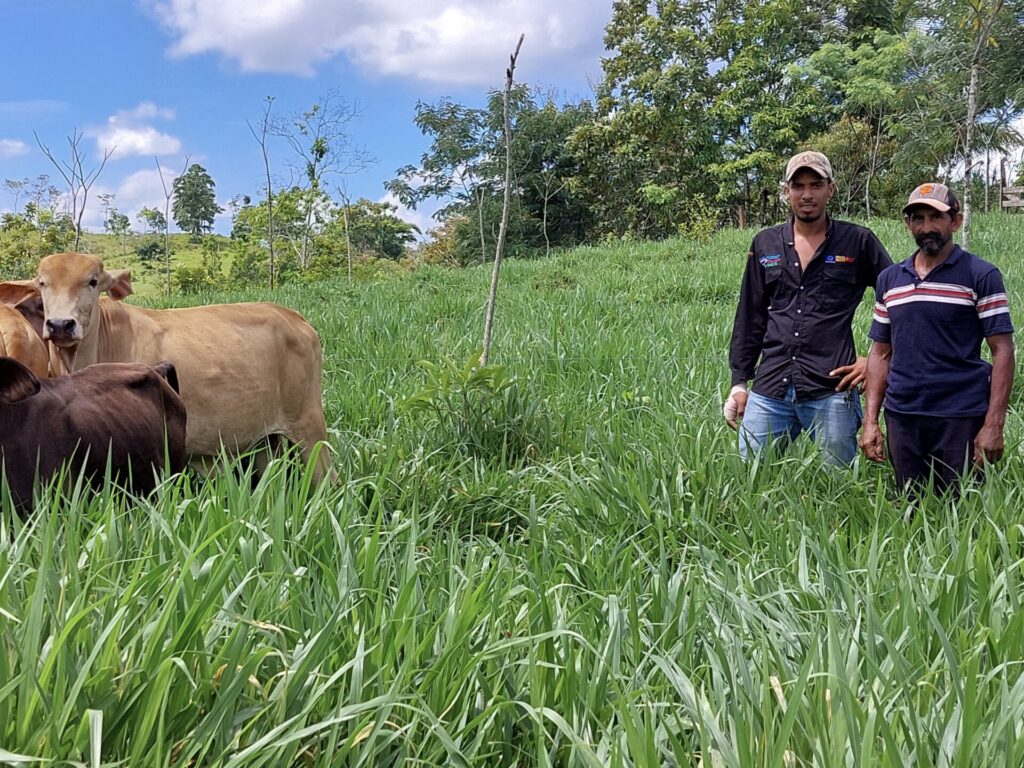
Worldwide results
We started working on regenerative cattle farming in the Argentinian Chaco biome, where we engaged 216 farmers and trained 160 in regenerative forest management practices.
In Tanzania, farmers reported increased daily milk production, while in Ethiopia two dairy hubs are under development.
In Southern Africa, 1,500 farmers were trained in animal health and nutrition, silage making, fodder production and preservation. Demonstration plots were set up in Malawi and Zimbabwe.
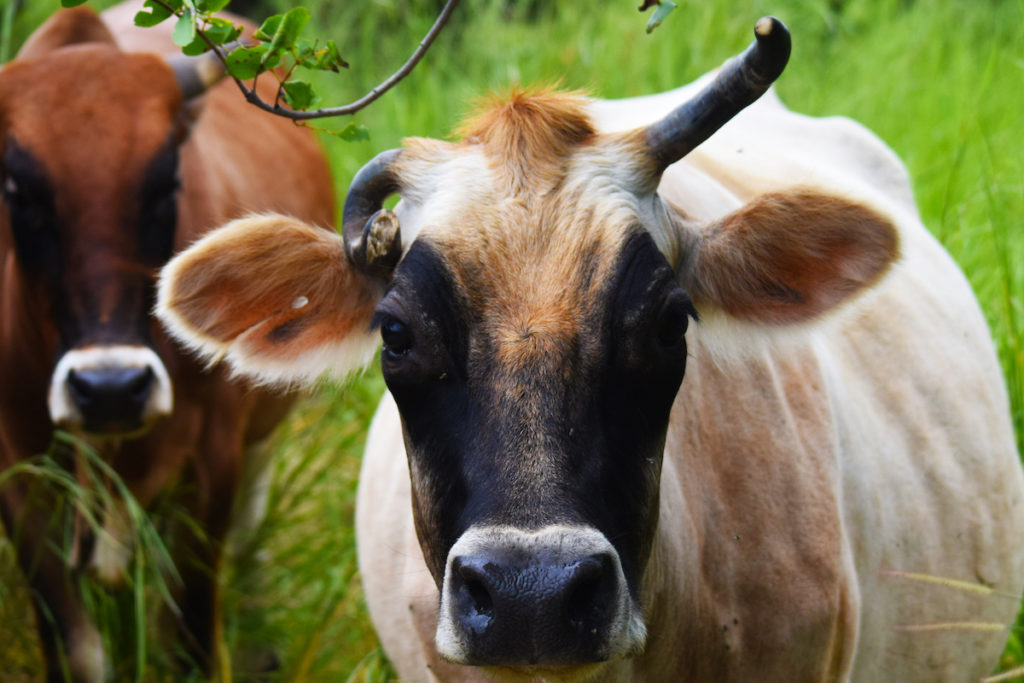
Great outcomes
In East and Central Africa, 5,516,173 litres of milk were aggregated through three dairy hubs established in three cooperatives to enhance income diversification for coffee farmers.
In Latin America, our dairy model in Chaco reduced greenhouse gas emissions by 63 percent per litre of milk produced after one year of implementation.
Our livestock programme in Nicaragua grew from 130 to 180 producers adopting good practices, disseminated through farmer field schools and promoter initiatives.
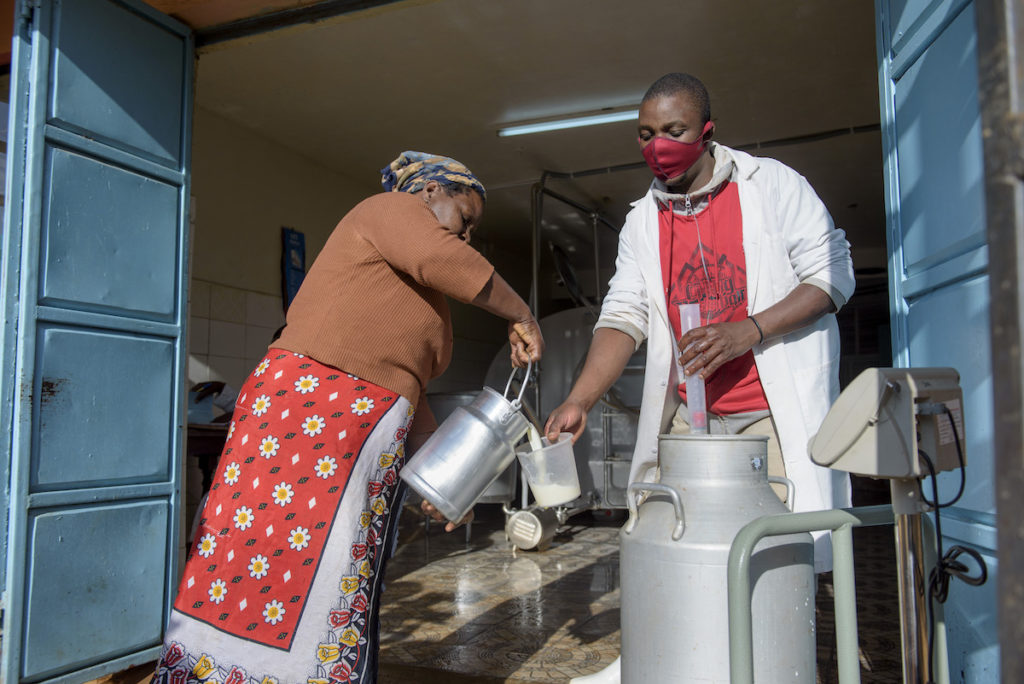
Global progress
Through a pilot programme in Nicaragua, we co-established a zero-deforestation livestock platform, alongside stakeholders from the private and public sectors, producer organizations and CSOs.
Across Tanzania, a total of 425 farms in Tanzania and dairy farmers were educated on various topics including calf rearing, heat detection, proper feeding of dairy cows, formulation of home-made ration, fodder growing, management and storage, record keeping, animal health and herd projections. In Southern Africa, the Livestock project trained a total of 414 smallholder farmers on holistic rangelands management, and 61 service providers have achieved self-sustenance.
In South America livestock farmers maintained 49 percent of their native forest and increased their productivity by 31 percent against the regional baseline, while decreasing carbon emissions by 18 percent per hectare and 14 percent per kilogram of beef produced.
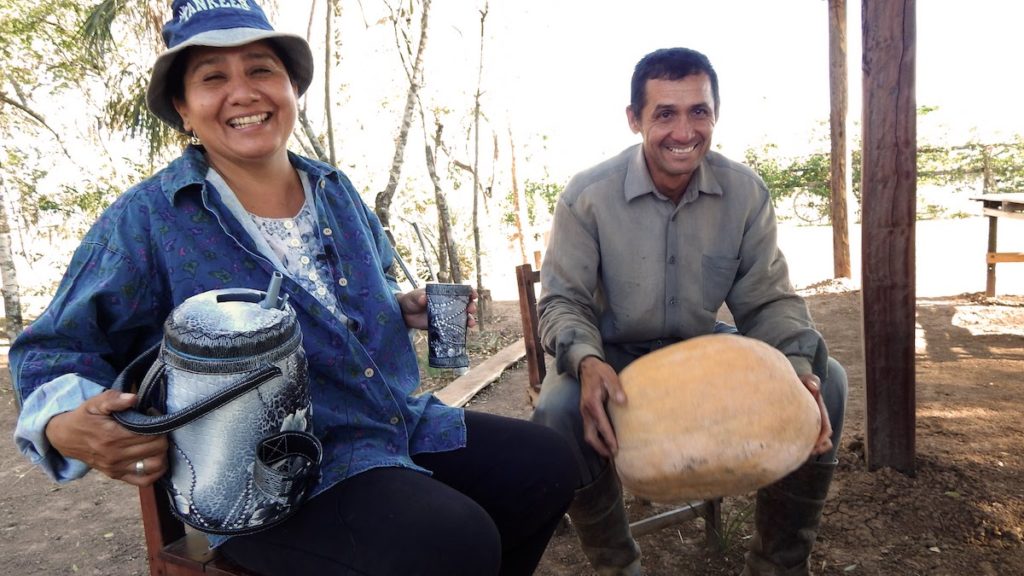
New programmes
In Zambia, we launched a pilot livestock programme focusing on grazing land, climate mitigation and resilience. The project seeks to restore practices that help the ecosystem thrive while increasing knowledge around cattle breeding from the market perspective. In Paraguay, we supported small-scale dairy producers to adopt climate-smart technologies to improve herds’ resilience to sustained droughts in Dry Chaco. This increased dairy productivity by 17%, which led to two new cooperatives to adopt climate-smart technologies.

Gaining attention
As a result of the Paris Climate Agreement, livestock sustainability is gaining more attention worldwide. One of the challenges is to combine climate-smart livestock production with a decent income for the millions that try to earn a living in livestock. Solidaridad’s experience from the eight livestock Farmer Support Programmes in seven countries provided a solid foundation for setting up new initiatives in 2016.

Livestock in the spotlight
The UN Climate Change Conference in November 2015 put the spotlight even more firmly on sustainability in the livestock sector, which is responsible for about 15% of global greenhouse gas emissions. Within the industry, there is considerable potential to reduce emissions, particularly by low-yielding smallholder producers in the global South. There are social implications too, with more than 1.3 billion people around the world dependent for their livelihoods on livestock production.

Growing impact
The Farmer Support Programme, including Livestock, is running in seven different countries: South Africa, Namibia, Kenya, Nicaragua, Uruguay, Paraguay, and Brazil. Later this year it is expected the Global Roundtable on Sustainable Beef (GRSB) will launch its principles and criteria for sustainable beef.

New reach
The livestock dairy project began in Bangladesh while in South America Solidaridad tested a continual improvement self-assessment tool for livestock.

Launching GRSB
Solidaridad co-founded and became a board member of the Global Roundtable on Sustainable Beef (GRSB). Additionally, Solidaridad launched the Livestock Farmer Support Programme.

The work begins
Livestock became a full supply chain programme and the first International Programme Coordinator is appointed.

A first for beef
First Global Conference on Sustainable Beef. Solidaridad started its cooperation with Zandbergen, a major meat distributor.

The GTPS
Solidaridad engaged with the cattle sector. This later lead to the formation of the Brazilian Roundtable on Sustainable Livestock (GTPS).

Poverty alleviation
Solidaridad supported work on poverty alleviation by developing farming with small ruminants (goats).


